The Bruckner Year 2024, celebrating the 200th birthday of one of the most innovative composers of the second half of the 19th century, will see the release of multiple recordings of the Bruckner cycle.
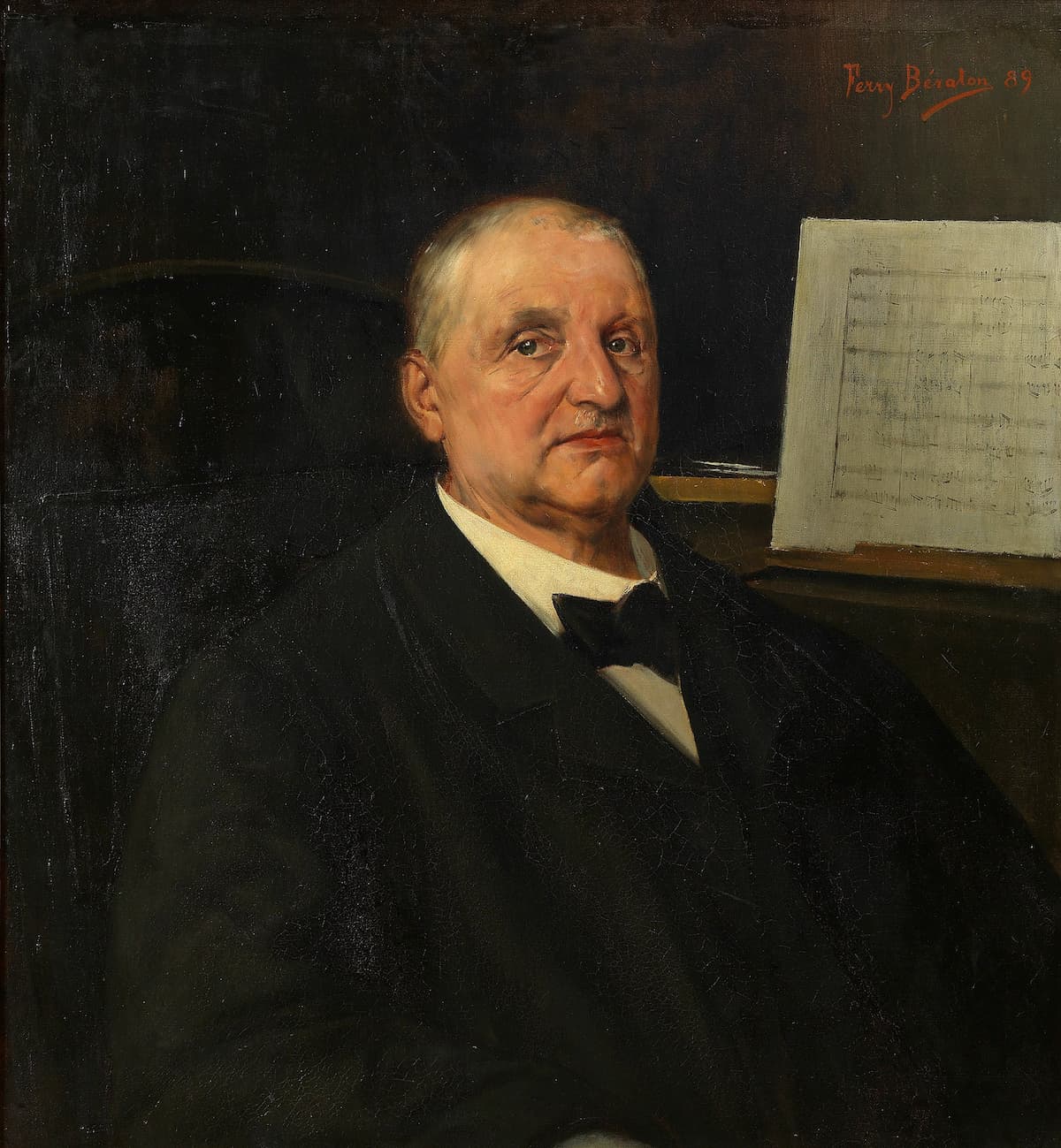
Anton Bruckner, 1889
The composer was plagued by crippling insecurities that made him endlessly revise his music scores, and he seemingly allowed outside influences to shape the content of his music. Untangling the relative merits of Bruckner’s various versions and finding a definitive musical text has been a major concern for performers and scholars alike.
Anton Bruckner: “Vexilla regis”
Rémy Ballot
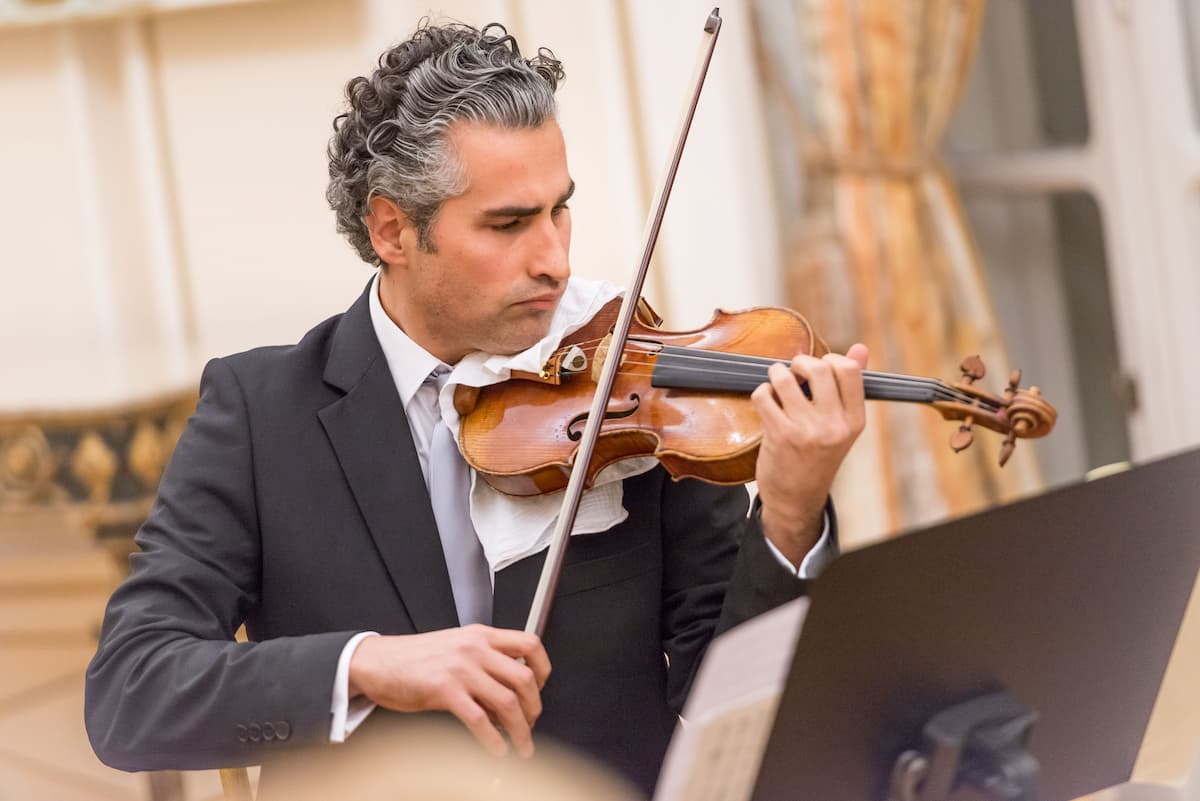
Rémy Ballot
One of the newest and most promising bids of tackling this so-called “Bruckner Problem,” has been attempted by the French violinist and conductor Rémy Ballot. A student of Gérard Poulet at the Paris Conservatoire, Remy was accepted as a pupil by Sergiu Celibidache at the age of 16. In due course, Ballot founded his own orchestra in Paris and became a regular guest in the first violin section of the Vienna Philharmonic Orchestra.
At this point, Ballot has made eight live recordings of his cycle of all Bruckner symphonies with the Altomonte Orchestra St. Florian, the final resting place of Anton Bruckner. For a number of commentators, these recordings serve as a reference point with a critic writing,
“His Bruckner sounds powerful like a huge church organ, but also extremely differentiated and finely structured in the quiet passages. A completely authentic Bruckner with ideal performers at an ideal recording venue.”
Rémy Ballot Rehearses Bruckner Eight at St. Florian (excerpt Adagio)
Failing Health
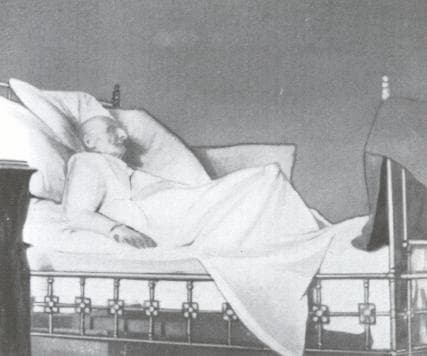
Bruckner on his death bed
Anton Bruckner had been struggling with his health from as early as 1880. He detailed various ailments in his diaries and letters, including the swelling in his feet that stopped him from playing the organ. He was too ill to attend Wagner’s funeral in February 1883, and could not travel to Graz to hear the long-awaited first performance of his Fifth Symphony.
In 1891 he suffered the first in a series of debilitating attacks which, with few respites, rendered the last years of his life a constant struggle. Modern cardiologists have diagnosed the symptoms as acute heart disease related to alcoholism and have concluded that the disease had probably been in his body for some time.
Anton Bruckner: Helgoland
Ninth Symphony
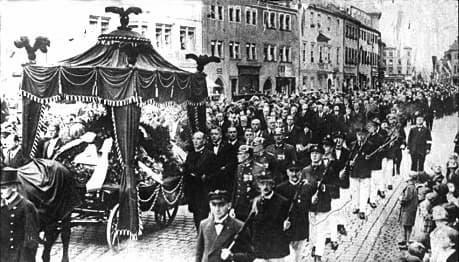
Bruckner’s funeral
His final compositional efforts focussed on the Ninth Symphony, which he started in 1887. He approached this work hesitatingly explaining, “I do not like to begin the Ninth, Beethoven ended his life with his ninth.” Although he was busy with symphonies, he still found time to compose several pieces for liturgical service. His last a cappella motet Vexilla regis dates from 1892, as does the ecstatic Psalm 150 for soprano solo, chorus, and orchestra. In 1893 he also completed the cantata Helgoland for male chorus and orchestra.
The Ninth Symphony is the third Bruckner symphony to be scored in D minor. “It grieves me,” he later told a friend, “that I conceived the theme of the Ninth in D minor. People will say, obviously Bruckner’s Ninth must be in the same key as Beethoven’s Ninth. But I cannot discard nor transpose the theme because it appeals to me just the way it is and it looks well in D minor.” Bruckner finished the first movement in 1892, and the Scherzo and Adagio in 1894. His maid reported that he was still trying to complete the finale on 11 October 1896, the day of his death.
Anton Bruckner: Symphony No. 9, “Feierlich” (Royal Scottish National Orchestra; Georg Tintner, cond.)
Death and Funeral
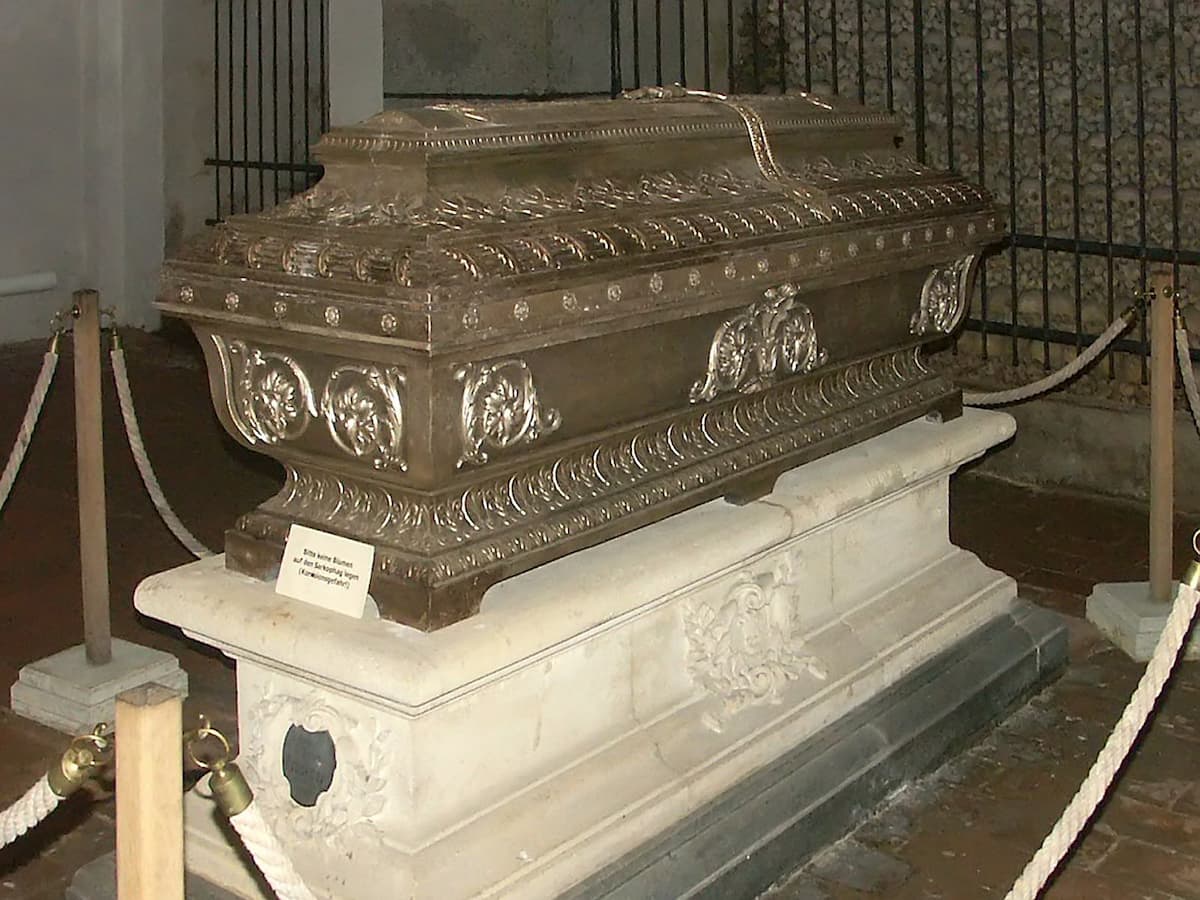
Stift Sankt Florian, the sarcophagus of Anton Bruckner
Because of ill health, Bruckner had stopped teaching at the University in 1894, and increasingly lost contact with the world. He was relieved of all financial worries during the last year of his life by the Austrian Emperor, who provided him with an apartment in the Belvedere Palace. Shortly before his death, Hugo Wolf visited his old teacher and he reported, “Lying in bed, with face pale and emaciated, gazing at the ceiling with a rapt look, a smile of transfiguration on his face, Bruckner was beating time on the bedspread with his index finger for music which he alone could hear.”
Bruckner’s funeral took place in the Karlskirche in Vienna on 14 October, and according to his will, his remains were to be placed in the crypt under the great organ in St. Florian Monastery. Thousands attended the procession to the Vienna railway station, including Brahms, who was extremely ill himself. Between the viewing in Vienna and the burial in St. Florian, Bruckner’s body was mummified, and at the entombment ceremony, the organist Josef Gruber improvised on themes from Parsifal.
For more of the best in classical music, sign up for our E-Newsletter
